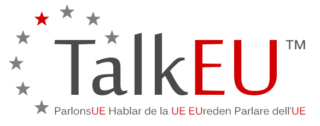TalkEU Hablar de la UE
EUreden Parlare dell’UE
Article 50 was triggered on the 29th of March 2017 by the British Prime Minister Theresa May. The major problem is that no-one knows what Brexit means, in practical terms. Students, particularly EU students, are left wondering what studying in the UK post-Brexit will look like. Let us consider the following: Tuition Fees, Lifestyle and the Universities themselves.
Tuition Fees
Studying in the UK is expensive. Tuition fees are already double the EU average, and are likely to rise even further in the coming years – rapidly approaching prices seen only in the United States. In the current situation, fees don’t have to be paid out of pocket. UK and EU students can take out a loan from Student Finance to cover the tuition fees and, depending on household income, some of the living costs. International students however, are not usually eligible to use Student Finance. They face fees upwards of £20,000 per year at the UK’s top universities, plus living costs.
As an EU citizen, studying within the EU is a very appealing alternative. Tuition fees are comparatively low, and in some cases free. In addition, funding is readily available to cover the costs of living. There are several well-financed exchange programmes that allow students to travel between institutions in the EU. Further European Commission funding is being made available to encourage this.
One would hope that the current deal for EU students studying in the UK is preserved during Brexit. A “Hard Brexit”, may result in EU citizens being classed as international students. An EU student may find it difficult to justify the expense of studying in the UK as an international student, especially when a much cheaper alternative is available closer to home.
Lifestyle
Lifestyle in Europe and the UK are actually very similar. The cost of basic items (bread, milk etc.) in the UK is practically the same as most of Europe. Availability of amenities such as restaurants, bars and clubs are comparable with Europe. As are outdoor activities such as hiking, camping etc. The main item that tends be more expensive in the UK is housing, particularly in London. It is however important to mention that accommodation can also be more expensive in Europe than the UK. In practice, the running costs of studying in the UK are mainly dependent on individual circumstances, rather than Brexit.
The main lifestyle effect Brexit may have for students is hassle. In the current arrangement, EU citizens do not require visas to enter, live or study in the UK. Leaving the EU will likely make travelling to and from Europe more difficult. This is a very thorny issue with anti-Freedom of Movement being one of the most popular reasons for voting to leave the EU. The rights of EU citizens in the UK, let alone EU students, are far from certain.
Post-Brexit, EU students may need to get visas, like the Tier 4 Student Visa currently required for international students. Under the Tier 4 system, the student must demonstrate acceptance onto a recognised course, with enough money to support themselves. The Tier 4 visa places restrictions on work and travel in the UK. This may make it more difficult for EU students to study in the UK compared with studying in the EU.

Universities
The UK is one of the largest recipients of EU research funding. This was around €8.8 billion euros from 2007 – 2013. EU funding currently makes up around 15% of UK science funding. In addition to funding, EU membership also gives hassle-free access to international research networks, facilitating collaboration and exchange of ideas. As a result, many of the staff at UK universities are very skilled EU nationals. They have been resident in the UK for several years and often have families to provide for.
It is very unclear how university research will be affected by Brexit. It is possible that the UK will pursue Associated Country status. Associated Countries are eligible to apply for funding in the same way as Member States of the EU. Associated countries however are expected to contribute towards the research budget. Higher funding amounts can be obtained in exchange for adopting Freedom of Movement ideals. Associated Countries however have limited input regarding the overall research aims of available funding.
It is not yet known what the resulting deal for the UK will be. A Hard Brexit will lead to UK universities losing substantial amounts of funding, access to resources, and influence. Brexit may mean that many of the university staff are suddenly faced with visa and residence permit requirements. Faced with new immigration hassle, and a loss of funding and resources, many university staff may choose to leave the UK and return to the EU. This would make it very difficult for the universities to attract students, from both the UK and the EU.
Conclusion
To conclude, the answer to the question depends on the outcome of the Brexit negotiations. Ideally, the existing arrangements would be preserved as much as possible. It is however not unlikely that there will be new immigration restrictions imposed on EU citizens by the UK government. This may result in reduced access to EU funding for UK universities. EU students must be prepared for the possibility of studying in the UK as an international student. It is down to the individual student to decide whether studying in the UK is worth it, considering the EU options available.
TalkEU
This article is part of the TalkEU series. TalkEU will answer a wide range of questions, from what language the Brexit negotiations will be in, to whether UK citizens may need to translate their passport to apply for European visas.
We will be posting a new TalkEU article each week, so don’t forget to keep checking our blog for more information and answers.


